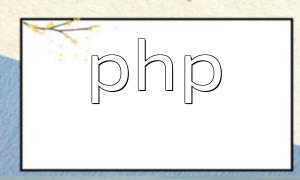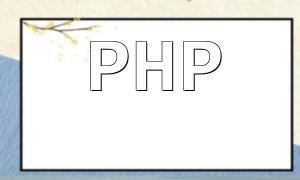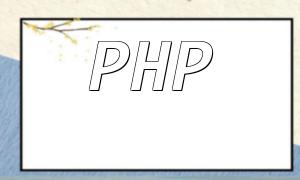During PHP development, a common type of error is syntax errors, especially the "unexpected T_STRING" symbol error. This usually occurs when string quotes in the code are not properly closed or the syntax is incorrect. Understanding the cause of this error helps quickly locate and fix the issue.
$name = "John;In the example above, the string's double quote is missing its closing counterpart, causing a PHP parsing error. The error message often shows something like "unexpected 'John' (T_STRING)". The fix is to ensure quotes come in pairs:
$name = "John";$message = "I'm a PHP developer and I love coding!";If a string contains unescaped quotes, it leads to syntax errors. The correct approach is to escape the quotes with a backslash:
$message = "I\'m a PHP developer and I love coding!";$text = "Hello \ , World!";If a backslash is followed by an invalid character, it causes a parsing failure. Check and remove or properly escape invalid characters.
$age = 25;
$greeting = "I am $years old.";An incorrect variable name causes PHP to fail parsing. The correct way is to use curly braces to explicitly define the variable:
$age = 25;
$greeting = "I am {$age} years old.";To address the unexpected T_STRING symbol error in PHP, focus on:
Mastering these techniques will effectively prevent and resolve related syntax errors. Developing rigorous coding habits during development will greatly improve code stability and maintainability.









